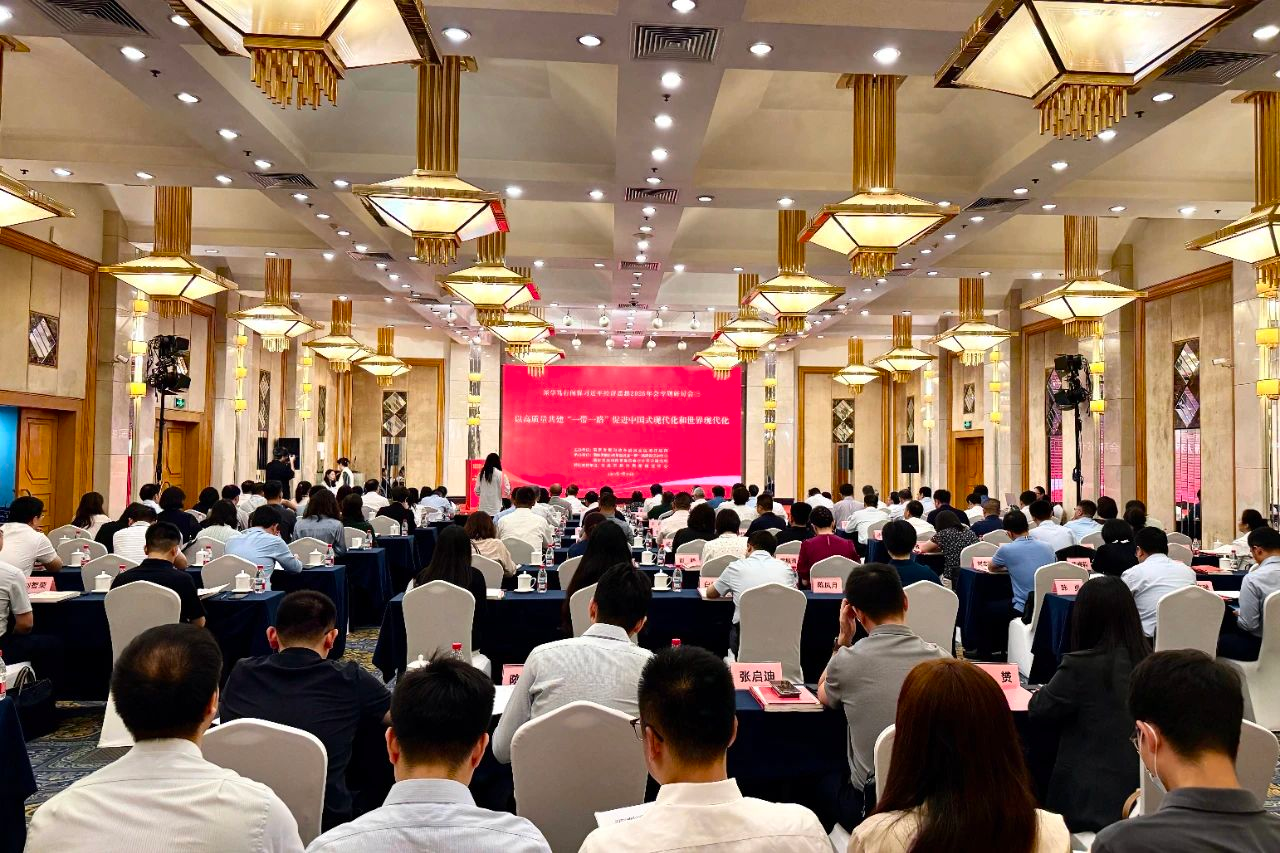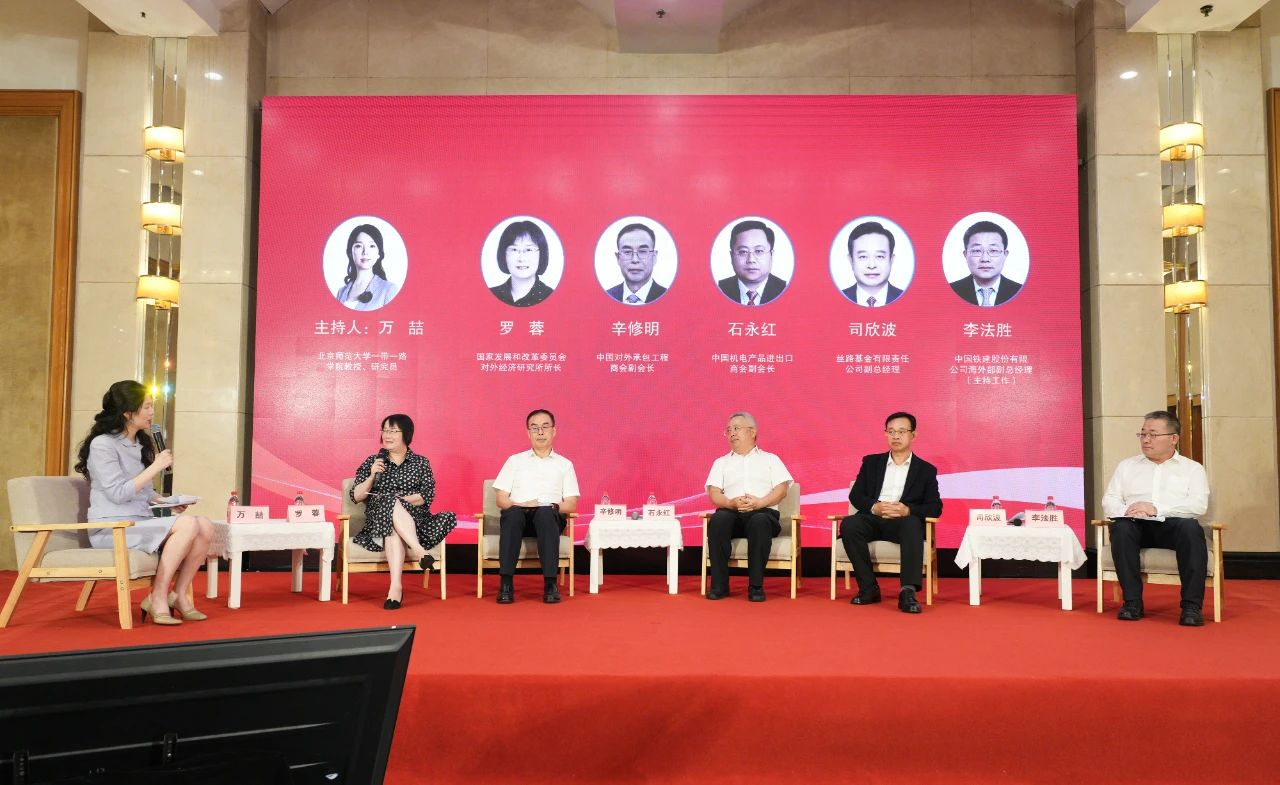
On the afternoon of July 30, a seminar on BRI (Belt and Road Initiative) cooperation convened in Beijing as part of the 2025 Annual Meeting on Understanding and Implementing Xi Jinping’s Thought on Economy. Centered on the theme “Promoting Chinese and Global Modernization Through High-Quality BRI Cooperation,” the seminar brought together participants for in-depth discussions on fostering the high-quality development of the Belt and Road Initiative (BRI).

During the opening remarks, Yuan Da, Secretary-General of the National Development and Reform Commission (NDRC), highlighted how BRI cooperation has become a powerful driver in fostering a new and higher-standard open economy in China. It has also played a pivotal role in addressing global development challenges and enhancing international governance. He stressed the importance of understanding and implementing General Secretary Xi Jinping’s key statements on the BRI, and called for steadfast efforts to advance its high-quality development. Lian Xiaomin, Member of the Leading Party Group and Vice Chairman of the All-China Federation of Returned Overseas Chinese, remarked that overseas Chinese communities are natural bridges connecting China with the world. He emphasized the Federation’s commitment to harnessing their unique strengths in supporting high-level opening-up and fostering people-to-people bonds. Moving forward, efforts will center on advancing the “4530” Action Plan, strengthening brand leadership, driving development through key projects, and showcasing exemplary models to inspire broader participation of overseas Chinese in BRI cooperation. Zhao Yingmin, President of the BRI International Green Development Coalition (BRIGC), emphasized that building a Green Silk Road is a vivid embodiment of Xi Jinping’s Thought on Economy and Thought on Ecological Civilization within the framework of BRI. This effort, he noted, has made important contributions to global economic growth and the green and low-carbon transition.
In keynote speeches, Wang Yiming, Vice Chairman of the China Center for International Economic Exchanges, underscored that high-quality BRI cooperation hinges on nine key cooperation mechanisms. These efforts, he noted, are essential for expanding the development space for Chinese modernization while also supporting the modernization journeys of countries around the world. Wang Peng, Member of the Party Committee and Vice President of China Development Bank, pointed out that the key to fully harnessing the role of policy-based financial institutions requires a dual approach: diversifying BRI investment and financing services on the supply side, while improving the quality and efficiency of practical cooperation on connectivity projects from the demand side. Guo Xuejun, Deputy Director-General of the Department of International Economic Affairs at the Ministry of Foreign Affairs of China, remarked that over the past 12 years, BRI cooperation has made a remarkable leap from concept to action, and from vision to reality. He called for continued perseverance, a keen eye for new opportunities, and a strong focus on pragmatic cooperation to further build international consensus and strengthen global synergy. Song Lihong, First-Class Inspector of the Department of General Affairs of China’s Ministry of Commerce, stated that the BRI has reshaped China and brought benefits to the world. Moving forward, efforts should focus on integrating trade and investment, coordinating flagship and “small but smart” projects, strengthening risk prevention, and safeguarding overseas interests. Wang Zhong, Member of the Leading Party Group and Deputy Director of the Fujian Provincial Development and Reform Commission, highlighted Fujian’s commitment to advancing the construction of the Maritime Silk Road core area. The development of the core area will be pushed to a next level by establishing a high-efficiency, fast-paced infrastructure network and strengthening mutually beneficial cooperation along industrial, supply, and value chains. Wang Dezhan, Deputy General Manager of China Railway Container Transport Co., Ltd., emphasized that the China-Europe Railway Express, as a flagship project and hallmark brand of BRI cooperation, will continue to enhance its quality, efficiency, and security capacity.

During the dialogue session, Luo Rong, Director of the Academy of Macroeconomic Research under the NDRC, stressed that promoting high-quality BRI cooperation requires unwavering efforts to manage China’s own affairs effectively and to deepen high-level opening-up. She also emphasized that the nine key cooperation mechanisms will serve as vital engines for fostering win-win partnerships with BRI partner countries. Xin Xiuming, Vice President of the China International Contractors Association, noted that BRI projects not only drive local economic and social progress in partner countries but also deliver tangible benefits to China’s own development. He added that the association continues to provide services to enterprises while strengthening industry self-discipline and coordination to uphold fair and orderly market practices. Shi Yonghong, Vice President of the China Chamber of Commerce for Import and Export of Machinery and Electronic Products, highlighted that machinery and electronical products remain the mainstay of BRI trade. They play a crucial role in ensuring smooth trade flows and advancing shared development through overseas engineering projects and industrial investment cooperation. Si Xinbo, Deputy General Manager of the Silk Road Fund, remarked that investment and financing institutions are central to the BRI’s success. He called for the development of financial products that are better tailored to project needs, innovation in investment models, and broader promotion of RMB usage in overseas markets. Li Fasheng, Deputy General Manager of the Overseas Business Department of China Railway Construction Corporation Limited, shared that through landmark projects such as the Addis Ababa–Djibouti Railway, the China-Laos Railway, and the Hungary-Serbia Railway, it is clear that BRI cooperation has become a pathway to modernization and shared prosperity for countries across the globe. Professor Wan Zhe of Beijing Normal University concluded that the Belt and Road Initiative is both visionary and deeply rooted in public sentiment—anchored in history while offering a clear vision for the future.
The seminar was moderated by Liang Linchong, Director-General of the Department of Regional Opening-Up of the NDRC. Representatives from member organizations of the Leading Group for Promoting the Belt and Road Initiative, relevant government departments, research institutes, industry associations, local governments, and enterprises attended the event. The seminar was hosted by the Department of Regional Opening-Up of the NDRC, co-organized by the Belt and Road Initiative Center and the Academy of Macroeconomic Research, with special support from the Research Center for Xi Jinping Thought on Economy.
Copyright © 2020 BRI International Green Development Coalition. All rights reserved.
Address: No.5 Houyingfang Hutong, Xicheng District, Beijing 100035, China
Postcode: 100035
Fax: (86)10-82200539
E-mail: secretariat@brigc.net